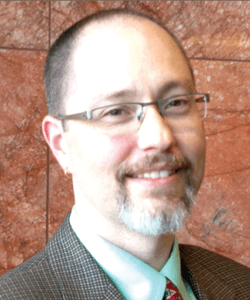Previous research has indicated that many physicians throughout the United States experience professional burnout, a syndrome characterized by emotional exhaustion, depersonalization, and a low sense of personal accomplishment. Studies suggest that burnout can reduce quality of care and increase risks for medical errors, among other negative consequences. Furthermore, there are other adverse personal consequences for physicians that have been linked to burnout, including contributions to broken relationships, problematic alcohol use, and suicidal ideation (read guest blogger, Dr. Rob’s, Top 10 Burnout Triggers).
“We have limited data characterizing physician burnout, but few studies have evaluated rates of burnout among U.S. physicians nationally,” says Colin P. West, MD, PhD. “Previous investigations have speculated on which medical or surgical specialty areas are at higher risk, but these analyses have not been definitive.” He adds that research is also lacking on how rates of burnout for physicians compare with rates for U.S. workers in other fields.
Medical Specialty Matters in Burnout
In the Archives of Internal Medicine, Dr. West and colleagues published a study on burnout involving a large sample of U.S. physicians from all specialty disciplines using the American Medical Association Physician Masterfile. Surveys were used to assess the prevalence of emotional exhaustion, enthusiasm dissipation, cynicism, depression, suicidal tendencies, negative views on work-life balance, and low professional esteem among physicians.
After collecting responses from 7,288 physicians from various healthcare settings, 45.8% reported experiencing at least one symptom of professional burnout. “We observed substantial differences in burnout by specialty,” says Dr. West (Figure). The highest rates of burnout were seen in physicians at the front lines of care, most notably family doctors, general internists, and emergency physicians. In addition, the following was observed among surveyed physicians:
37.9% reported high levels of emotional exhaustion.
29.4% reported that cynicism was an issue.
12.4% reported having a low sense of personal accomplishment.
Importantly, Dr. West notes that not all physicians reported an equal tendency toward professional unhappiness. “Our findings suggest that while many of the medical community’s first responders were more likely to suffer from some form of burnout, others were less likely to experience such issues.” These specialists included dermatologists, pediatricians, and preventive medicine physicians.
Burnout Among Physicians vs General Workers
The study by Dr. West and colleagues also compared physician burnout data with survey data from 3,442 working Americans. In these analyses, physicians were more likely to have symptoms of burnout and to be dissatisfied with work-life balance than general workers (Table). “It’s not surprising that many physicians are experiencing more stress than other U.S. workers because the healthcare system and consumers are increasingly putting higher demands and expectations on physicians,” Dr. West says. “The implications are important. These findings raise concerns about the negative impact physician distress can have on quality of care.”
Increasing Efforts to Find Solutions
With data showing that front-line physicians are experiencing greater distress than other working Americans, Dr. West says it is critical to target future research efforts on potential solutions for physicians. “When combined with positive changes in the healthcare environment, our findings emphasize the need to help physicians learn how to reach out to friends, family members, and work colleagues to get help when symptoms of burnout emerge.”
Medical and physician support programs are already in place in every state throughout the country and have reported many successes in helping physicians with burnout and other kinds of stress-related problems. The challenge, according to Dr. West, is that physicians—just like other people in general—often have trouble finding where to turn for help. Support systems are available for physicians, he says, but they must be encouraged to look at their own stresses, determine what kind of help they need, and feel comfortable reaching out for that help when it is needed.
With increasing evidence that physician burnout adversely affects quality of care, findings from the study by Dr. West and colleagues suggest that this problem threatens the foundation of the U.S. medical care system. “The problem of burnout won’t go away anytime soon as healthcare reform efforts are likely to increase demand for front-line care providers,” says Dr. West. “It’s important to remember that the origins of burnout are rooted in the environment and care delivery system rather than in the personal characteristics of a few susceptible people. Policy makers and healthcare organizations must address this problem for the sake of physicians and their patients.
Related Article!
Read Dr. Rob’s, Top 10 Physician Burnout Triggers
“Being a doctor is a privilege, but sometimes the pressures can turn the nicest doc into a jerk. Some of the things on my list are just part of the job, while others are caused by the ills of society and our ridiculous system.” – Dr. Rob


 Janine Anthes
Janine Anthes